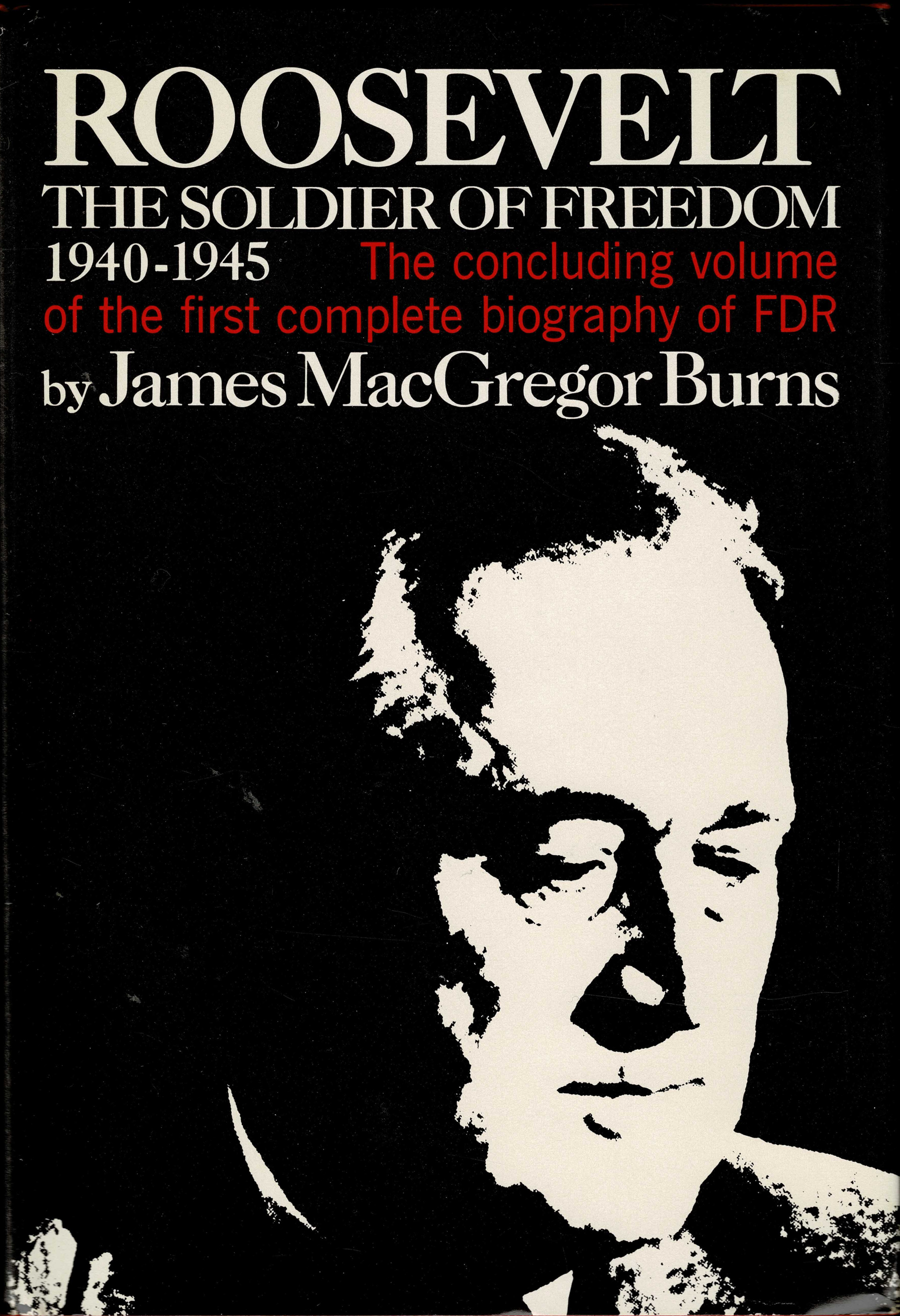Hardcover, 722 pages
English language
Published 1970 by Harcourt Brace Jovanovich.

Hardcover, 722 pages
English language
Published 1970 by Harcourt Brace Jovanovich.
The proposition of this stunning sequel to the celebrated Roosevelt: The Lion and the Fox, James MacGregor Burns notes in the Preface, is that Franklin D. Roosevelt "as war leader was a deeply divided man—divided between the man of principle, of ideals, of faith... and... the man of Realpolitik, of prudence, of narrow, manage. able, short-run goals, intent always on protecting his power and authority in a world of shifting moods and capricious fortune. This dualism cleft not only Roosevelt, but also his advisers.... And it divided the American people themselves, who were vacillating between the evangelical moods of idealism, sentimentalism, and utopianism of one era and older traditions of national self-regard, protectiveness, and prudence of another."
Mr. Burns has worked on an enormous canvas. The great world at war is passed in review, but the focus is always on Roosevelt—his brilliant war leadership, the great vision he …
The proposition of this stunning sequel to the celebrated Roosevelt: The Lion and the Fox, James MacGregor Burns notes in the Preface, is that Franklin D. Roosevelt "as war leader was a deeply divided man—divided between the man of principle, of ideals, of faith... and... the man of Realpolitik, of prudence, of narrow, manage. able, short-run goals, intent always on protecting his power and authority in a world of shifting moods and capricious fortune. This dualism cleft not only Roosevelt, but also his advisers.... And it divided the American people themselves, who were vacillating between the evangelical moods of idealism, sentimentalism, and utopianism of one era and older traditions of national self-regard, protectiveness, and prudence of another."
Mr. Burns has worked on an enormous canvas. The great world at war is passed in review, but the focus is always on Roosevelt—his brilliant war leadership, the great vision he pursued, the fatal ambivalence that lay at the heart of his strategy for freedom. The narrative moves from the dark days of 1940 and the fight over aid to embattled Britain to the day in April 1945 when the President quietly slipped away. This is a triumphant biography, and its concluding volume is written with the grace and power that characterizes Mr. Burns's work.